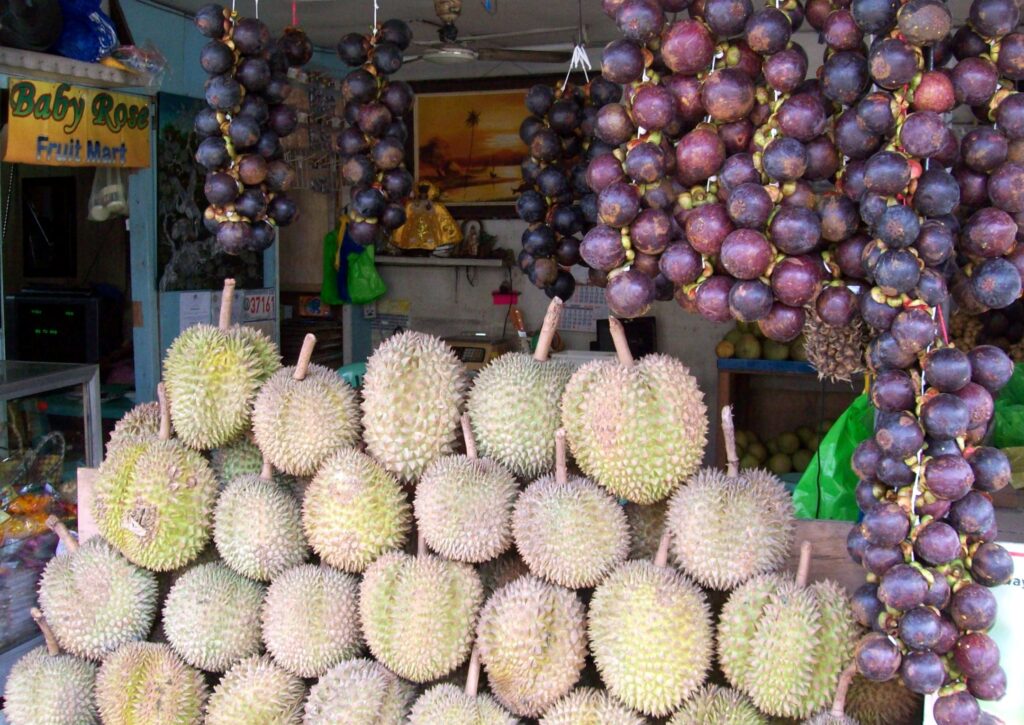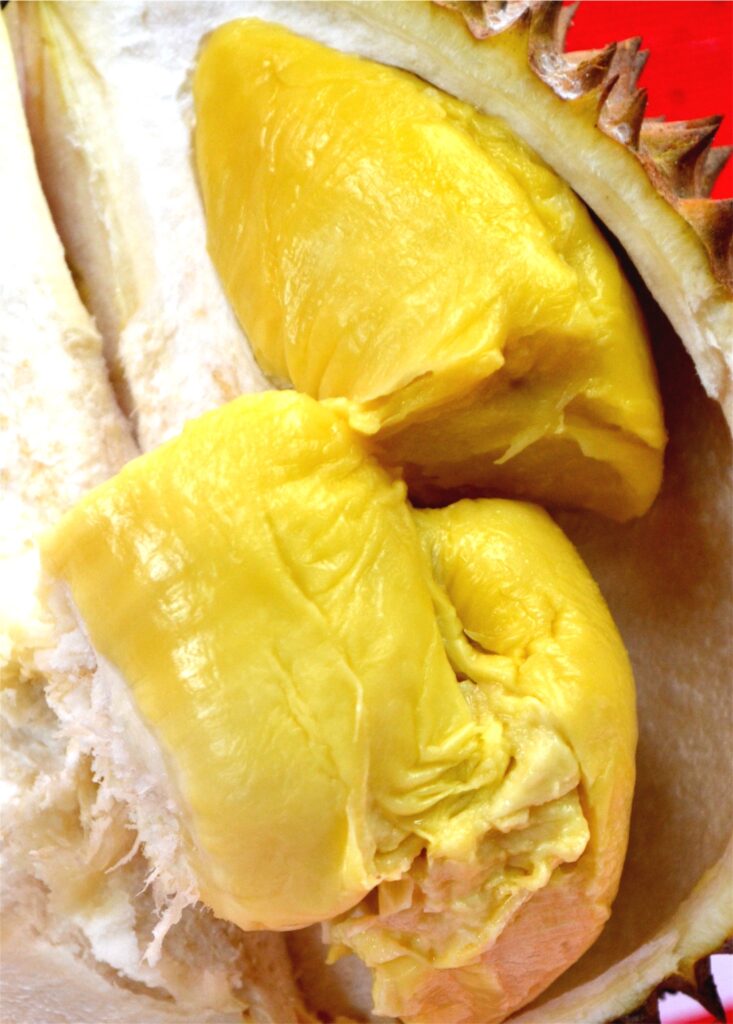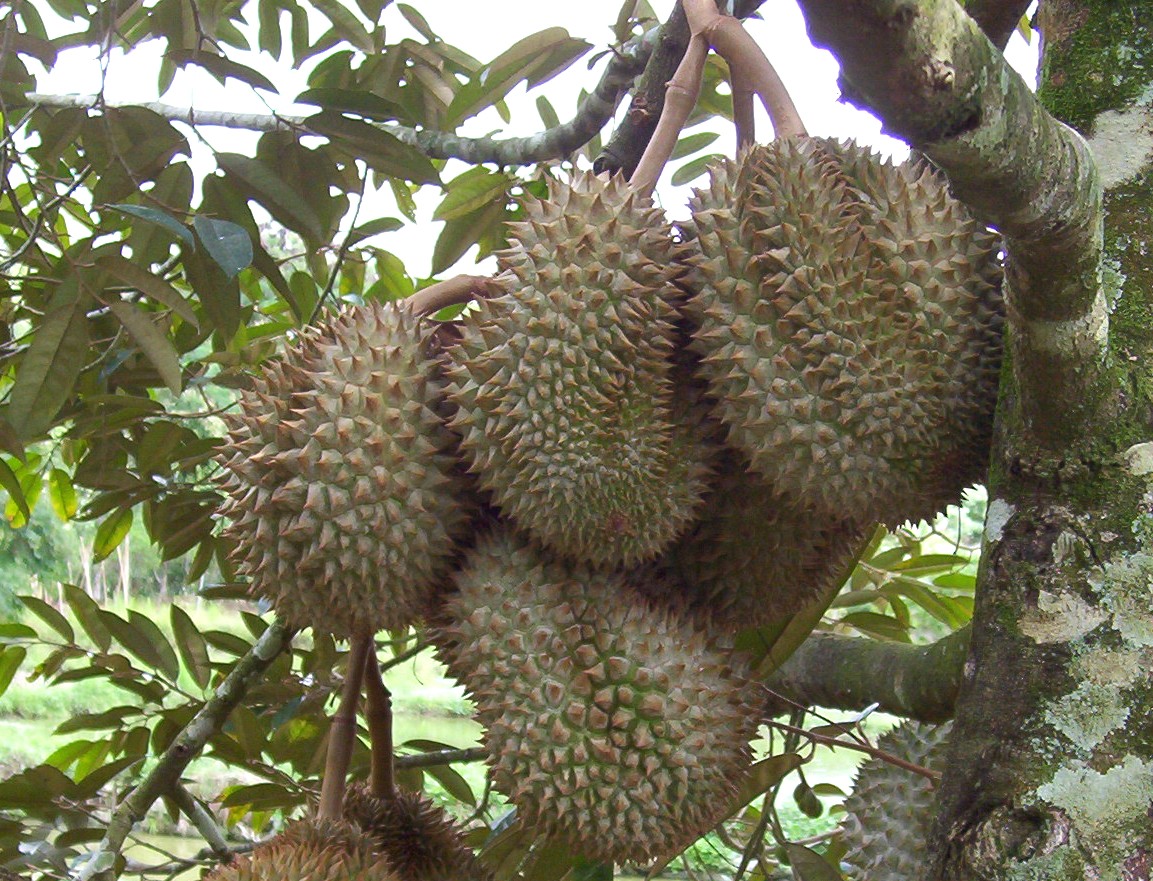Text and Photos by Henrylito D. Tacio
In the past, people ate durian less because the fruit was less available aside from the fact that it was expensive. These days, when you can already eat durian all you can, people are still eating less. The reason: high blood pressure.
Hypertension – as high blood pressure is known in medical parlance – once uncontrolled can lead to complications, including heart attack and stroke, aneurysm, heart failure, weakened and narrowed blood vessels in your kidneys, narrowed or torn blood vessels in the eyes, metabolic syndrome, trouble with memory or understanding, and dementia.
But what most people think about durian is just a myth. Eating durian does not trigger your blood pressure to spike, according to Dr. Bernard Chiew, a cardiologist at the Davao Doctors Hospital.
Dr. Chiew, one of the top heart specialists in Davao, if not the whole of Mindanao, said that there’s no evidence that shows durian can cause the blood pressure to increase when eating durian.
A study that was published in the International Journal of Food Properties supported his claim. It investigated the correlation between durian intake and the elevation of blood pressure and heart rate in healthy males. The participants consumed either a placebo, 250 grams or 500 grams of durian flesh. The blood pressure and heart rate were measured at various intervals up to 24 hours.
“Both systolic and diastolic blood pressure remained normal for groups given durian,” the study said. “However, a significant increase in heart rate was observed in the group given 500 grams of durian at half an hour to 2 hours. A modest amount of durian intake did not affect blood pressure and heart rate in healthy individuals.”
But despite this fact, people still believe eating durian causes hypertension. However, there are those who don’t think so. “That’s not true at all,” says Maria Lehrie A. Paradillo, a nurse. “During my first pregnancy, I used to eat durian seven times a day when durian was in season and my blood pressure remained normal.”

Like other fruits, durian should be eaten in moderation. “No scientific or medical proof that it can cause high blood,” said Val Turtur, president of the Cacao Industry Development Association of Mindanao, Inc. “When you eat much more than the average, it may cause hypertension. Everything that is too much may cause the rise of blood pressure.”
Eating too much durian may be fatal. In 2009, a government worker in Thailand died after eating five durians in one setting. In Singapore, a businessman who ate four durians in a row also died in 2012.
There’s also this myth that eating durian and drinking beer at the same time may kill you. “There is no scientific evidence to show that this is a lethal combination,” explains the website healthxchange.sg. “It is more likely to cause bloating, indigestion and discomfort as your liver has to work extra hard to metabolise both fats and sugars in the durians and the alcohol, especially if you have consumed both in excessive amounts.”
The International Medical University’s Center for Complementary and Alternative Medicine shares this bit of explanation: “Sulphur-containing volatiles in durian can inhibit the activity of the enzyme aldehyde dehydrogenase – which helps our liver to process alcohol – by up to 70%. Some people in Asian origin have an inherited deficiency of the enzyme. This may perhaps explain the claim that durian and alcohol is a deadly mix, especially when someone with a deficiency of this enzyme consumes durian and alcohol together.”
If you are diagnosed with diabetes, try to limit your intake of durian or, better still, don’t eat. “Durians are high in sugars such as fructose and glucose,” reminds raffleshealth.com. “People with diabetes may experience a rise in blood sugar if too much of it is eaten. This may cause symptoms such as blurry vision and nausea.”
“People with diabetes can eat durian, as long as they keep within the recommended two servings of fruit per day – two durian seeds equal one serving of fruit,” healthhub.sg suggests.
Perhaps one reason why people think that durian can cause high blood is because of its “heaty” characteristic. Although it cannot be found in the dictionary, it often refers to “characteristic of elevated internal temperature, sweating or fever.”
Some doctors suggested that this “heaty” feeling after eating durian causes a temporary rise in blood pressure and body temperature.

Dr. Hu Chang Hock, an advisor of the Malaysian Medical Association, advised those with hypertension or diabetes, or both, must not eat too much of the fruit. “Durians can cause the blood pressure and sugar level of people with hypertension and diabetes to shoot up,” he told The Star. “If you have both illnesses and you take an alcoholic drink with durians at the same time, you will put more poison into your body.”
Durian is a nutritional powerhouse. The fruit contains 147 kilocalories of energy, 1.47 grams of protein, 27.09 grams of carbohydrate, and 3.8 grams of total dietary fiber, according to the National Nutrient Database for Standard Reference. Its total lipid (fat) is 5.33 grams.
Durian contains the following minerals: calcium, iron, magnesium, phosphorus, potassium, sodium, and zinc. Among the vitamins it contains are vitamin C, thiamine, riboflavin, niacin, vitamin B6, and vitamin A.
The potassium it contains is one of the reasons why durian, in fact, keeps your blood pressure in check. “Durians are rich in potassium, which is important in maintaining the balance of salt and fluid in the body to regulate blood pressure,” raffleshealth.com explains. “A healthy blood pressure places less stress on your heart and blood vessels, which improves your heart health and reduces your risk of cardiovascular diseases.”
In this time of the pandemic, eating durian helps. “The fruit contains vitamin C, an antioxidant that protects against harmful free radicals, and supports your immunity against infections and vital attacks,” states raffleshealth.com.
If you are having trouble getting a good night’s sleep, try eating durian. “The higher levels of melatonin, the hormone that controls your sleep cycle, the better you sleep,” says Apple Chan, a dietitian at Gleneagles Hospital in Singapore. “Durian contains tryptophan, an essential amino acid that is required to increase the levels of melatonin. So, eating a seed of durian near bedtime may help you sleep better.”
Feeling weak, why not eat durian. “Next time you need an energy boost, consider a durian seed instead of reaching for that cup of coffee or energy bar,” Chan suggests. “Being high in carbohydrates, durian could also provide that energy boost when needed. Two seeds may give you as much energy as a medium-sized banana. The high potassium content in durians can also help reduce fatigue and relieve anxiety.”
Eating too much durian, however, is not good if you want to lose weight. A durian can have anywhere from 885 calories to 1,500 calories, depending on its size. Those who consume a durian in one setting can rack up as much as 68% of the daily 2,000 calories recommended for an average adult. “One seed durian (about 40 grams) has 54 calories,” says healthxchange.sg.
Durian is one of the most controversial fruits around. When Jimmy Kimmel, an American television host of Jimmy Kimmel Live, had his first taste of durian, he said: “It is a kind, the line between horrible and terrible, is right on that line.”
“It smelled like you’d buried somebody holding a big wheel of Stilton in his arms, then dug him up a few weeks later” was how the late Anthony Bourdain, a renowned American food critic, described durian.
One foreign scribe wrote it aptly: “Love it or hate it – there’s no emotion in between. People either swarm to it like bees to honey, or bolt from the room. They faint with lusty joy, or they faint, period, with a handkerchief pressed to their nostrils.”
In his book Following the Equator, Mark Twain wrote about his durian experience in Southeast Asia: “It was a strange fruit, and incomparably delicious to the taste, but not to the smell.”
The American humorist further wrote: “We found many who had eaten the durian, and they all spoke of it with a sort of rapture. They said that if you could hold your nose until the fruit was in your mouth a sacred joy would suffuse you from head to foot that would make you oblivious to the smell of the rind, but that if your grip slipped and you caught the smell of the rind before the fruit was in your mouth, you would faint.”
British naturalist Alfred Russell Wallace had the same experience. After a visit with the Interior of Borneo in 1855, he observed the offensive smell of durian in the house; some persons did not even attempt to taste it. “This was also my own experience when I first tried to taste it in Malacca; but in Borneo, I found a ripe fruit on the ground, and eating it out-of-doors, I became a confirmed durian eater.”
Because of the durian’s “foul-smelling odor,” that most airlines don’t allow the fruit on board. In Singapore, the Asian country with the most rigid policy and rules concerning the care for the environment, the durian is forbidden even on subway stations and trains.

Durian, anyone?

